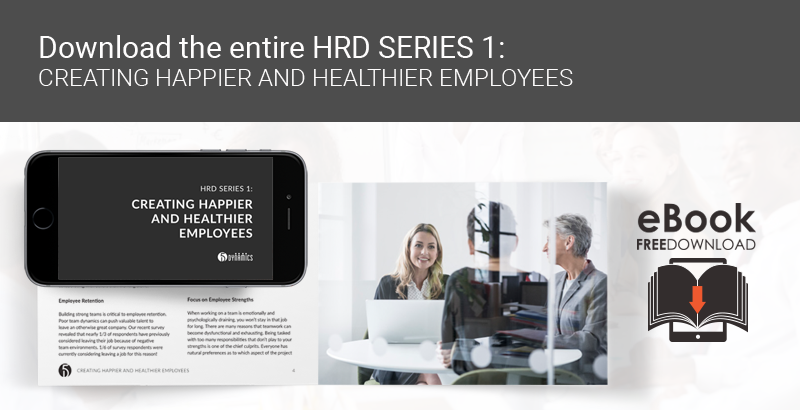Building Teams For Productivity And Employee Retention

Every HR Director knows that making and keeping quality hires is both imperative and difficult. Once you’ve secured great talent to work for your company, you want to ensure that they are performing at their best and feeling engaged and satisfied in their work. According to the NYTimes, both managers and employees are increasingly spending more time collaborating with others than working alone. [“Teams are now the fundamental unit of organization.”] If a company wants to outstrip its competitors, it needs to influence not only how people work but also how they work together.”
Employee Retention
Building strong teams is critical to employee retention. Poor team dynamics can push valuable talent to leave an otherwise great company. Our recent survey revealed that nearly 1/3 of respondents have previously considered leaving their job because of negative team environments. 1/6 of survey respondents were currently considering leaving a job for this reason!
Focus On Employee Strengths
When working on a team is emotionally and psychologically draining, you won’t stay in that job for long. There are many reasons that teamwork can become dysfunctional and exhausting. Being tasked with too many responsibilities that don’t play to your strengths is one of the chief culprits. Everyone has natural preferences as to which aspect of the project completion cycle they enjoy. Some people are great at generating new ideas, exploring possibilities, and developing original solutions. Others excel at building enthusiasm and securing stakeholder buy-in. Some enjoy the detailed planning portion of any project, and some love to drive the implementation and execution phase. A natural planner is not going to be very happy if they are tasked with ideation, and creative thinkers will experience implementation as drudgery. When staffing teams, assigning people to areas where they shine helps cultivate employee engagement and job satisfaction.
This doesn’t mean that project responsibilities should be based solely on a person’s personal preference—stretch assignments and opportunities for growth are important. But allowing employees to spend their time and energy on tasks that they truly love doing will make them happier and prevent frustration and burnout.
Creating High-Performing Teams
High-performing teams include members with a balance of skills. Imagine how much more productive and happy people would be if we aligned our teams around their natural preferences. Putting the right mix of people on a team is often the make-or-break point for both productivity and employee retention. HR leaders can use this insight to advise management on effective strategies for staffing. Leading to better outcomes for both companies and employees.
Contact 5 Dynamics today to learn the natural work preferences of talent at your company.



